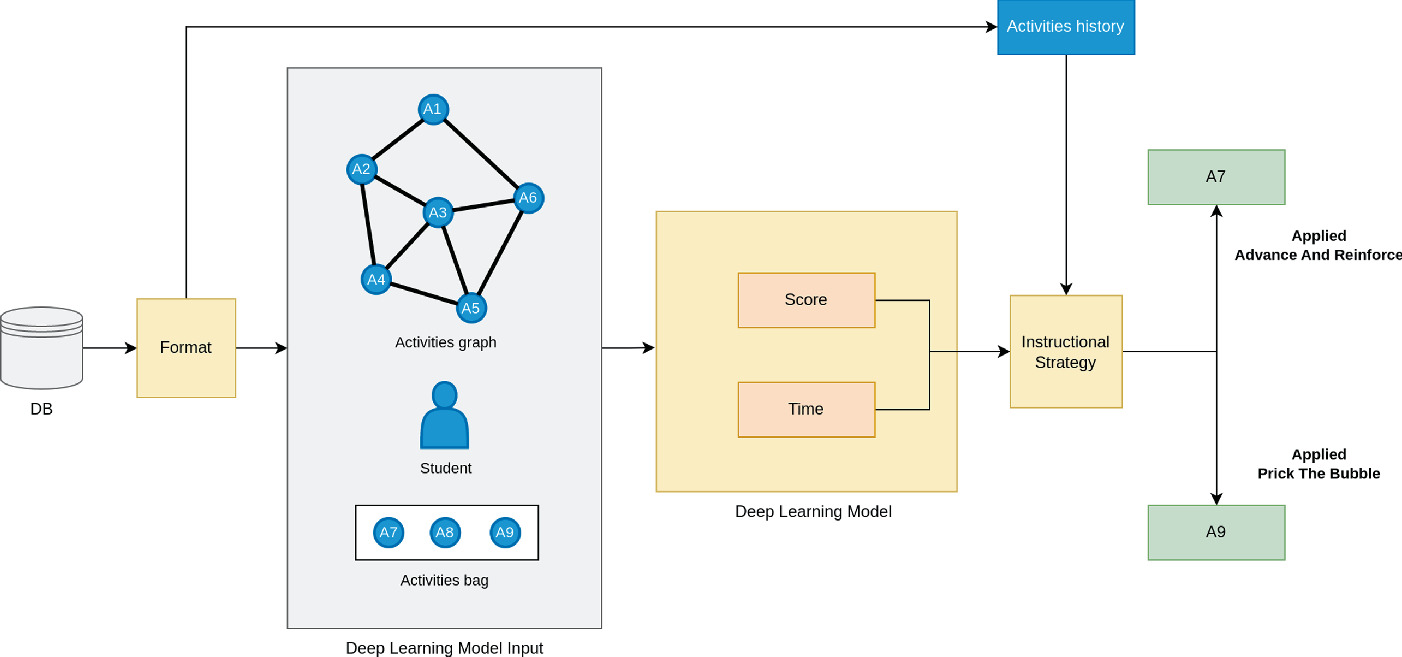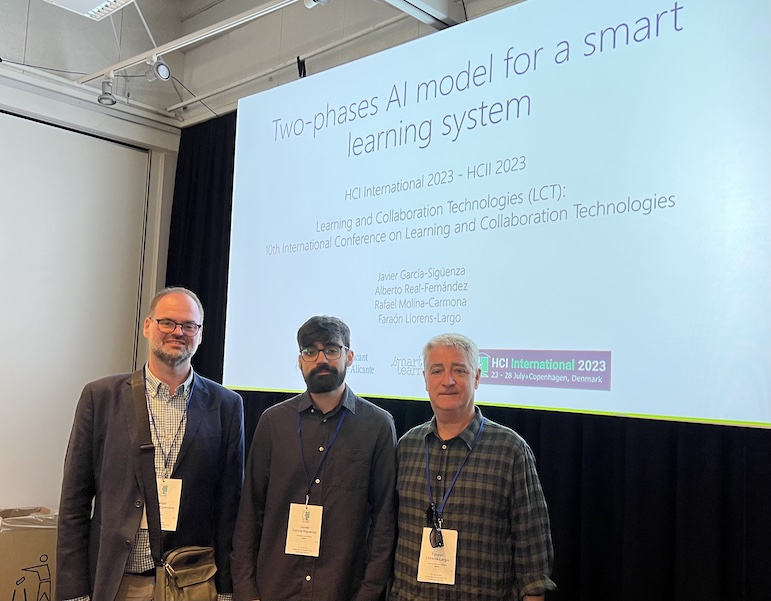Two-Phases AI Model for a Smart Learning System
Javier García-Sigüenza, Alberto Real-Fernández, Rafael Molina-Carmona & Faraón Llorens-Largo
25th International Conference on Human-Computer Interaction (HCII 2023)
Copenhagen, Denmark
23-28 July 2023
10th International Conference on Learning and Collaboration Technologies (LCT 2023).
Lecture Notes in Computer Science book series (LNCS,volume 14040) (https://link.springer.com/book/10.1007/978-3-031-34411-4)
https://link.springer.com/chapter/10.1007/978-3-031-34411-4_4
https://doi.org/10.1007/978-3-031-34411-4_4
Abstract
Current Information Technologies are mature enough to favor the creation of adaptive learning systems that also encourages active, autonomous and persistent learning. A solution could be the creation of artificial intelligence algorithms capable of detecting the individual learning needs and features of the learners, what skills they are acquiring and how they do it, or how they behave, in order to offer them an adapted and personalized learning experience. This is what is defined a smart learning system.
Therefore, in this research we aim to propose an Artificial Intelligence (AI) model for a learning system to achieve this purpose. It is based on a learning model called CALM (Customized Adaptive Learning Model), that offers personalized learning through different learning paths and adapts to each learner by offering a specific activity at any time. The selection of this activity relies on an AI engine that detects the needs and characteristics of the learner and selects the most appropriate activity.
To implement an AI model for this purpose, applying CALM principles, we propose the use of both the information provided by activities and the learner’s characteristics and progression. Combining these datasets with the use of deep learning techniques, we propose a two phases process. First, the model makes predictions that are personalized for each student, and then it applies a concrete instructional strategy to make the final decision, allowing the teacher to adapt and guide the student’s learning.
Keywords
Smart Learning, Artificial Intelligence, Deep Learning
Cite this paper as:
García-Sigüenza, J., Real-Fernández, A., Molina-Carmona, R., Llorens-Largo, F. (2023). Two-Phases AI Model for a Smart Learning System. In: Zaphiris, P., Ioannou, A. (eds) Learning and Collaboration Technologies. HCII 2023. Lecture Notes in Computer Science, vol 14040. Springer, Cham. https://doi.org/10.1007/978-3-031-34411-4_4

